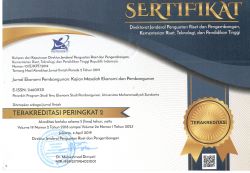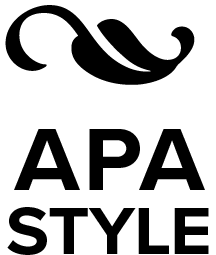Focus and Scope
JURNAL EKONOMI PEMBANGUNAN: Kajian Masalah Ekonomi dan Pembangunan (JEP:KMEP) aims to cover both macroeconomics and microeconomics fields.
Macroeconomics in particular includes development economics, monetary and fiscal policies, Islamic finance, international and regional economics, institutional economics, and tourism economics. Microeconomics includes agriculture economics, labor economics, behavioral economics, environmental economics, SMEs financing, feasibility studies, community empowerment, and coastal economics.
JEP: KMEP is published by Muhammadiyah University Press
Section Policies
Articles
Peer Review Process
All manuscripts submitted to Jurnal Ekonomi Pembangunan must adhere to the journal's focus and scope and author guidelines. The submitted manuscripts must address scientific merit or novelty appropriate to the focus and scope. All manuscripts must be free from plagiarism contents. All authors are suggested to use plagiarism detection softaware to do the similarity checking. Editors check the plagiarism detection of articles in this journal by using a Turnitin software.
The research article submitted to this journal will be peer-reviewed at least 2 (two) or more expert reviewers. The reviewers give scientific valuable comments improving the contents of the manuscript.
Final decision of articles acceptance will be made by Editors according to reviewers comments. Publication of accepted articles including the sequence of published articles will be made by Editor in Chief by considering sequence of accepted date and geographical distribution of authors.
Publication Frequency
JEP:KMEP is published twice a year, around June and December
Open Access Policy
This journal provides immediate open access to its content on the principle that making research freely available to the public supports a greater global exchange of knowledge.
Archiving
This journal utilizes the LOCKSS system to create a distributed archiving system among participating libraries and permits those libraries to create permanent archives of the journal for purposes of preservation and restoration. More...















